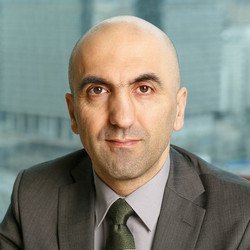Kastamonu to ramp up glue production in Alabuga
The Turks will resuscitate the project of the fifth plant for 30 billion rubles in Tatarstan
As Realnoe Vremya found out, Kastamonu (Turkey) is returning to the construction project of the fifth stage of the wooden flooring plant in Alabuga Special Economic Zone. However, it is doing this very carefully, if not excessively carefully by creating additional technological groundwork for it. Kastamonu Intergrade Wood Industry LLC received a positive statement of public hearing to ramp up glue production by 80,300 tonnes annually. It is planned to expand the capacities by early 2024, but the most difficult thing for the resident is to receive an approval of the environmental impact of the materials from the Russian environmental watchdog because the products have the greatest danger grade.
Kastamonu back to its previous project
One of the large residents of Alabuga, Kastamonu from Turkey, is preparing to resume the investment programme for 30 billion rubles, which was interrupted at the very beginning, soon after the start of the special operation in Ukraine. Six months after the programme was confirmed by the Supervisory Council of the zone Kastamonu Intergrade Wood Industry LLC decided to make the announced plans a reality by dissipating initial doubts about frozen investments.
This week, it has been known that in Yelabuga Kastamonu Intergrade Wood Industry held public hearings dedicated to a project aimed to increase the production of glue based on urea-formaldehyde it is impossible to expand the production of MDF without. The public hearings were held to evaluate the environmental impact because according to the Russian classification it is considered the first danger category. The annual additional production of 80,300 tonnes of glue is the case, the organisers of public hearings told Realnoe Vremya.
“The new production will be located on the territory of the existing one,” said a representative of Ecopolis preparing the environment impact assessment for Kastamonu Intergrade Wood Industry LLC. “No additional land is needed. They have a very big land parcel, about 470 hectares. It allows expanding the production of glue materials on the parcel.”
The new production facility is modestly called parcel in the documents. In fact, it is a big chemical factory, which is at least 10 times bigger than analogous Russian factories. According to the representative of Ecopolis, it is necessary to expand the glue production to launch the fifth stage of particle board production. The amount of investments isn’t revealed, but some experts estimate the costs on such plants are evaluated at 1,2-1,5 billion rubles.
Kastamonu hasn’t provided any comments.
Start of construction depends on Russian environmental watchdog
According to the newspaper’s sources, the production is planned to start in 2023-2024. It is yet hard to know the exact term because a positive report of the environment impact assessment from the Russian environmental watchdog has to be obtained.
“1,5 years, 18 months, are given for the construction period. It is planned to start the construction when the permit of the environmental watchdog is obtained,” said the representative of Ecopolis.
The application hasn’t been sent yet, the documents are prepared for submittal for state environmental inspection in the Russian environmental watchdog. The executive committee of Yelabuga confirmed that the public hearings ended with a positive result.
“58 citizens participated in them,” said chief specialist of the organising department Olga Yermolenko. According to her, the issues related to the safe use of the expanded production of glue materials were heard.”
“There was a question from a citizen of Yelabuga at the hearings. If there are some accidents, there was a question about water, this is written down in the protocol of the hearings. An engineer of Kastamonu Intergrade Wood Industry LLC answered it. He said that an underground reinforced concrete tank for emergency discharge will be created,” the representative of Ecopolis explained.
The protocol of the results of public hearings was signed by vice head of the executive committee Oleg Kolpakov, the organising department of the municipality specified.
Several days before the start of Russia’s special military operation in Ukraine, on 18 February, the supervisory council approved the investment project for a particle board production project in Tatarstan for 30 billion rubles. This is the fifth plant of the company.

“This is a big project and without doubt it is very important for us,” Tatarstan President Rustam Minnikhanov noted then, a meeting of the Supervisory Council was chaired by him. After the beginning of the special operation, there was a months-long pause, nothing was heard about the project. However, federal legislation permits terminating agreements, but the residents decided to continue the work as the relations between Russia and Turkey got stronger.
Nowadays Kastamonu has two MDF production lines with a capacity of a million square metres and two laminate lines — for 450,000 square metres. The total production is 1,4 million square metres of products a year, and in this indicator, the company is in the top 5 largest producers in Russia.
Hayat settled in Kaluga
Earlier, other regions tried to get the new plant of Kastamonu. Among them there was Vladimir and Nizhny Novgorod, Kaluga Oblast. The latter option could be in Kaluga SEZ because Hayat (the main company) is headquartered here, its first plant making personal hygiene products with a capacity of 70,000 tonnes a year opened as early as December 2021. Here, it is also planned to locate a new factory with about 9 billion rubles of investments.
“A new window of opportunities is opening for them,” thinks Chairman of the Russian-Turkish taskforce in the Russian Union of Producers and Entrepreneurs Arsen Ayupov. According to him, with the exit of European companies, Turkish businesses are starting to occupy their niche. “Turkish industrial companies that initiated their projects in Russia continue them. The stance of regional management played a big role here.”

The interlocutor of the newspaper added that there are “opposite examples when regional authorities demonstrated some indifference, and this almost always ended with the departure of a Turkish investor to another region.”